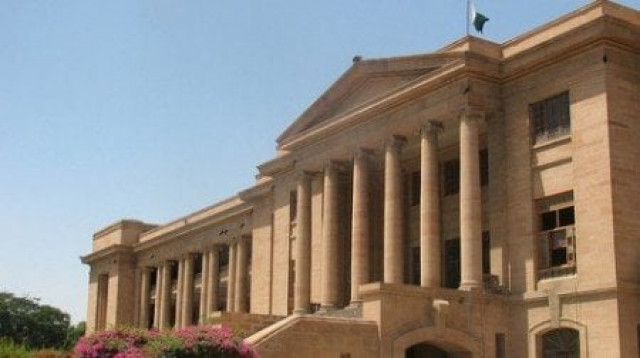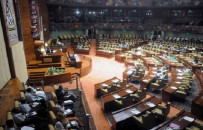PTI challenges repealing of NAB ordinance
Khurrum Sher Zaman and Arif Alvi petition SHC to declare the new law void

Nineteen workers were granted bail. PHOTO: EXPRESS
Similar petitions have been filed with the Sindh High Court (SHC) so far, challenging the controversial provincial law, which sparked debates and caused severe criticism of the provincial government from the opposition parties.
Last week, the court had issued notices to the federal and provincial governments on a petition jointly filed by three opposition parties - the Muttahida Qaumi Movement-Pakistan, Pakistan Muslim League - Functional and Pakistan Muslim League - Nawaz. Another petition was filed by the Pasban-e-Pakistan.
Assembly turns blind eye to governor’s objections
In their petition, the PTI leaders Khurrum Sher Zaman and Arif Alvi said the Pakistan Peoples Party (PPP) government in Sindh was in a frenzy trying to bludgeon the anti-corruption laws through implementing the new legislation. They argued that the Sindh National Accountability Ordinance 1999 Repeal Bill, 2017, as passed in the form and manner by the Sindh Assembly and the PPP legislators, was unreservedly unconstitutional, unlawful, illegal, absurd and void from outset. It was also in conflict with the federal legislation, thereby was liable to be declared null and void.
The PTI leaders further argued that the recent legislation was enacted on the hypothesis that after the 18th Amendment, the co-existing list in the Fourth Schedule of the Constitution had been eradicated and thereby the matter of criminal law, procedure and evidence was in prerogative of the provincial assembly. "This stance is fallacious, misleading, erroneous, mythical and deceptive, thereby the Sindh government has over reached its authority," the PTI legislators claimed.
They pleaded that even after the abolishment of the concurrent list in the 18th Amendment, the Article 142(b) states that the criminal law, procedure and evidence fell within the ambit of both the provincial and federal governments. Similarly, the Article 143 also suggests that the Sindh government made an unconstitutional move in repealing the NAB law, they added.
Will take action against NAB if it interferes in Sindh govt affairs, warns CM Murad
The PTI lawmakers argued that the new act also repeals the Anti-Corruption Act, 1991 and will have an overriding effect on other laws. They argued that no provincial law could override the provisions of the Constitution and thereby the Sindh National Accountability Ordinance 1999 Repeal Bill, 2017 could not hinder the operation of the National Accountability Ordinance, 1999.
The current legislation was brought into operation to safeguard the corrupt elements of Sindh government from the clutches of the law, the PTI leaders claimed, adding that the 1999 ordinance was a shield against corruption. The new law encroaches upon fundamental rights of ordinary citizens of Sindh province guaranteed under the Constitution, they said.
The SHC was pleaded to annul the act, declaring it unconstitutional. The petitioners also requested the court to declare that the enacted law does not override or eclipse the inquiries launched or filed under the NAB ordinance.
‘Who will hold corrupt persons accountable if NAB is eliminated?’
The court was also requested to permanently, or during pendency of the petition, restrain the respondents from transferring any inquiry, investigation, proceedings or cases under the NAB ordinance to any other authority under the new law.



















COMMENTS
Comments are moderated and generally will be posted if they are on-topic and not abusive.
For more information, please see our Comments FAQ